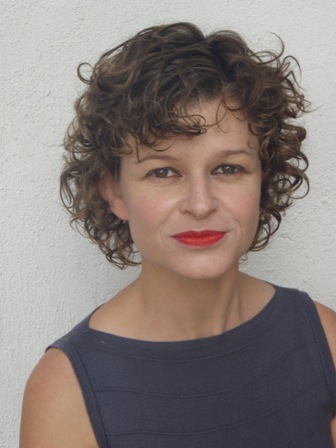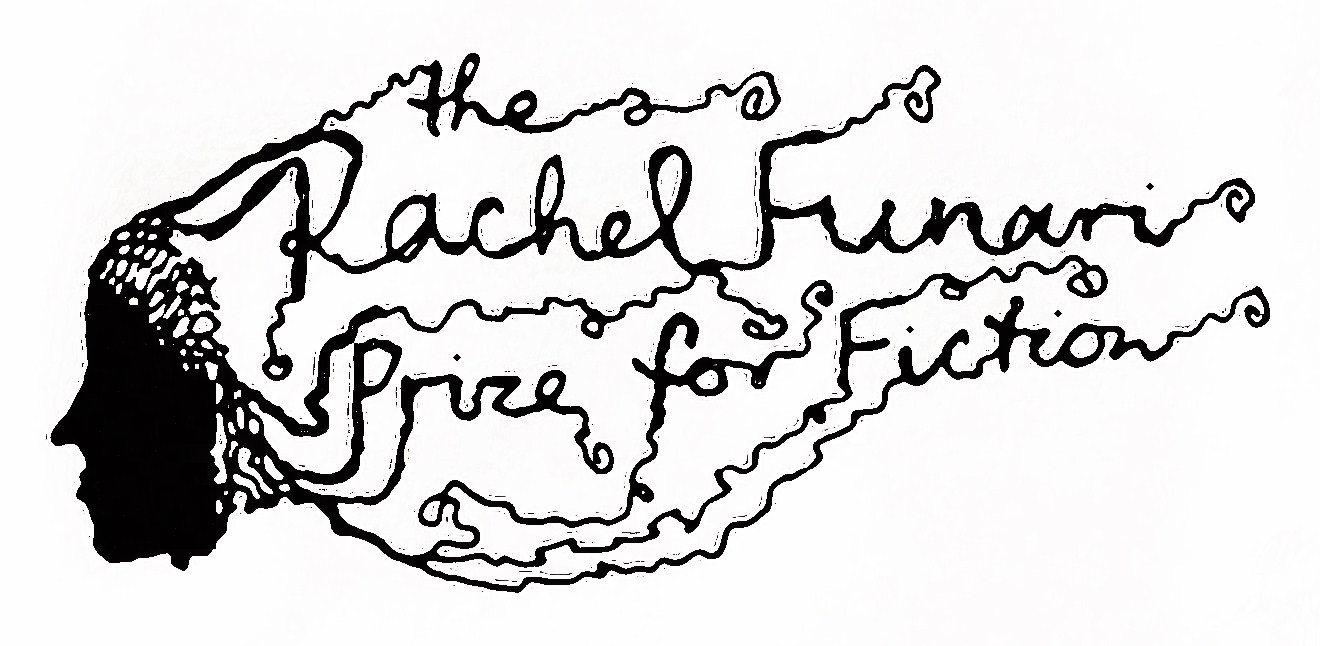meet the winners of the 2016 rachel funari prize for fiction: 2nd place, “mother of invention” by jude bridge

Image: Supplied
Jude Bridge’s story, Mother of Invention, won 2nd place in the 2016 Rachel Funari Prize for Fiction. Here is an interview with Jude, plus her award-winning story!
*
Tell us a bit about yourself. Who are you?
I live in Perth and am always thinking of a new story, or play, or song. In a previous life, I was a stand-up comedian, with singing duos and trios, travelling widely nationally and internationally, amusing and offending audiences. Now, I work as a Library Technician at a big, important University, which provides plenty of material and keeps me supplied with books. At this moment I’m on the balcony of a hotel in Bali and when I’ve finished this, I will be drinking gin and tonics, yaaaaaaaaaaaay! You can visit me at www.judebridge.com if it takes your fancy.
What do you think it takes to win an award-winning story?
I think it depends who’s reading/judging it. I read books and stories that win awards that are chock-full of adjectives (excessive use of adjectives do not a good story make) and words that I have to look up and I think why oh why? Then I read a prize-winner that makes me think, ‘I wish I’d written that’. Each to their own. The important thing is to have faith in one’s own product, and it will find a way.
Where do you write?
I do most of my writing while swimming laps. The paper gets very wet. I would like a device that I can keep at the end of the pool to scribble down ideas as I go. I’m not interested in a technical device, I write longhand and am a stationary addict.
What inspires your work?
Horses, television advertisements, the ubiquitous usage of new technologies, gender inequalities, fairy tales, feeling sad, libraries (often), zombies, foodies, people and trees, and always the “what if?” factor. More often that not, “what if” this story didn’t stay in the real world? Where can it go? Anywhere, say the voices in my head, which is why I write in the tragi-surreal-urban-comedic-domestic-crime-fairytale genre.
Why did you enter the Rachel Funari Prize for Fiction?
I like writing to a theme, and my stories often have strong female protagonists, so the competition was a good fit. I’ve entered several times, and this time is my first placing (see above for being inspired by horses).
What does ‘Other’ mean to you?
The opposite of what is seen as normal. I believe that most of us are “other” in some way; there isn’t much normality about, one only has to scratch the surface a little to find the “other” lurking within. Normality is just a fantasy used by the powers that be to keep us in nice and quiet in our cages. Right, gin and tonics here I come…
Mother of Invention
Rowena stood in the shower, the water almost too hot, but just not, and for three seconds, did nothing, luxuriously. Her silence was shattered by Anna banging into the bathroom, running off at the mouth about a permission form for the school camp being due today.
‘Are you eating?’ asked her weary, watery mother.
‘No,’ yelled Anna, through a mouthful of toast.
‘Go and sit at the table and finish it.’
‘What about the form?’
‘Can’t Dad sign it?’
‘He’s in the toilet and I’m going to miss the bus.’
Rowena reluctantly stepped from the shower, swiped water from her short brown hair and took a towel from the rail. Her ten-year-old daughter chomped on the crusty end of her toast, holding out aVegemite-smeared form and a pen with a chewed end.
Her mother signed. Anna clomped down the hallway.
‘Ro,’ called Tim, ‘have you seen my car keys?’
She found Tim’s keys near the fruit bowl, partially hidden by a flyer from a local hairdresser and some partially crushed jellybeans.
‘I should get a finder’s fee,’ she said.
‘Thanks, honey.’
He bent to kiss her forehead but she moved and he toothed it. Tim slammed the door on the way out.
Rowena dried herself and gave up. She called work and said she was sick, then climbed back into bed, ignoring the tiny balls of dried grass and lint that Tim liked to bring to bed on his feet. She woke at eleven, tied herself into a sarong, made a strong coffee, stepped outside and sat on the patio bench, toying with the idea of making a Salad Niçoise for lunch. The day was bright and warm, the sun shining on the small piles of dog faeces on the lawn.
She was so, so tired.
Hermione, a silky terrier with beautiful black eyes (which she couldn’t see much from, because her fringe desperately needed cutting), jumped onto the bench. She plonked herself down, extended her fluffy chin, rested it on Rowena’s thigh and went to sleep.
Around two o’clock, they made their way to the kitchen for lunch. Hermione’s claws made a clicking sound on the tiles. So did Rowena’s feet. She told Hermione to sit, and took a few steps. Her feet clicked. Surely if she’d broken a toe, she thought, it would hurt. Rowena lifted her right foot and pressed it. It was too hard inside, and very heavy. The left foot was the same. Tight, heavy, and more than a little worrying.She ate a hard-boiled egg, gave Hermione some biscuits, clicked down the hallway self-consciously and returned to bed.
Anna came home from school. ‘Mum,’ she shouted, ‘Mum!’
‘In my room,’ said Rowena, barely opening her eyes.
‘Mum! Where are you?’
‘In my room.’
‘Why are you in bed?’
Anna jumped onto the bed, crunching an apple, the juice spraying onto the doona. ‘I’ve got training at four.’
‘Dad can take you. I’m sick.’
‘But I want you to take me, so you can watch. You don’t look sick.’
‘Only if you pick up the dog poo first.’
‘But Mum …’
‘She’s your dog.’
Anna scowled and clomped away.
Rowena couldn’t put sneakers on, her feet were too fat, so she wore thongs. Even so, her toes splayed over the edges and she felt as though she were taking giant, King Kong, earth-trembling footsteps.
Her surly daughter got into the car and slammed the door. Rowena drove off gently, getting the feel for her ridiculously heavy feet on the pedals.
At swimming training, the plastic chair she was sitting on felt terribly hard. Then she realised it was her bottom that was hard, it felt as though the bones were sticking into the plastic. Until today, she had owned a soft bottom.
The next day she called in sick to work again and made an appointment with Dr Jones, the near-retirement age doctor who had treated the family for many years.
‘Have you been doing anything unusual lately?’ he asked, manipulating her right foot.
‘No. Nothing out of the ordinary.Working, walking the dog, failing as a wife and mother.’
‘I know how you feel.’
He knelt down and listened to her feet clicking as he bent them to and fro.
‘Mmm. There’s a metal framework developing inside your body.’
‘What?’
‘Unusual, but not unheard of. I’ve seen it before a few times. Two months ago, a young man from Midland presented with the same symptoms.’
‘What happened to him?’
‘The framework spread throughout his body.’
‘That’s horrible! Did he die?’
‘Hell, no, he’s still got a good two to three hundred years left to live, according to my calculations. Works as a mechanic.Can fix any car, boat, motorbike, you name it. Has an affinity with them. Really listens to their problems.’
‘But why is it happening to me? I don’t understand.’
‘You said you were “failing as a wife and mother”. I know it’s a joke, but have you been under extra pressure lately?Feel really, really tired?’
‘I’m always really, really tired.’
‘There you go. Your body is coming to your rescue. Making itself stronger.’
‘The change, is it painful?’
‘Have you felt any pain?’
‘No.’
‘Neither did the mechanic. The metal has an organic component that melds with human tissue.’
‘Why haven’t I heard of this mechanic?’
‘Why would you?’
‘It’s a bit different, wouldn’t you agree?’
‘Anomalies have become the norm, Ro. Don’t worry. You should be fine, it’s a gradual process. You’ll still be able to work etcetera. I’ll talk to the mechanic, give him your number if you like, it can help to talk to someone with the same condition. Stay away from magnets. Your diet will change. Eat whatever feels right. And expect to double or triple your current body weight.’
‘You’re kidding me.’
‘No kidding. Metal weighs more than flesh.You won’t get fatter, just heavier. Anything else I can help you with?’
Rowena explained to the family over dinner that she was in the process of changing into a metal person.
‘I’ve seen this on YouTube,’ said Jackson, excited. ‘Hey Mum, can I enter you in the Robot Demolition Derby at school?’
Rowena explained to Jackson that she wasn’t a robot, being controlled by someone else, but operating under her own free will. He asked if, using her own free will, she would participate in the Derby at school. Rowena said she’d consider it.
Tim’s response was ‘are you still going to be able to do the usual stuff?’
‘By “the usual stuff”, do you mean cleaning, cooking, chauffeuring the kids around, etcetera?’
‘Yep.’
‘No, I won’t be able to. Dr Jones was adamant about that. You’ll all have to pitch in. my metal …’ she was surprised to feel pride when talking about her metal, ‘won’t tolerate contact with “human” food or “human” detergents.’
Tim put on his nasty face.
‘I’m not doing this to spite you,’ said Rowena.
Over the following months, she became faster and faster as her body filled with metal parts.Rowena ran to work, overtaking the bus, matching pace with a red Ferrari one Friday. At work, she found she preferred the company of the photocopier and printer to that of Margaret, Sue and Dianne.
Jamil, the mechanic, called. They met at a café. He was brown skinned with brown eyes and long metal eyelashes. They laughed as they both gingerly tested the seats before sitting down, both had broken a few chairs. Jamil weighed two hundred and forty kilograms, despite having a body as lean and toned as Rowena’s slim frame. As they sipped their oil, canola for Jamil, peanut for Rowena, sparks flew. Jamil gave her a tune-up and they agreed to meet again.
Anna and Tim grew closer, a united front against their evil wife/mother. Tim cooked and cleaned and chauffeured and muttered about getting a safe to lock his wife in at night so that he’d know where she was. Rowena didn’t need sleep anymore.
Jackson, conversely, was thrilled with his new Mum. She won first prize, two thousand dollars and considerable kudos for Jackson in the Demolition Derby. Her sonhad pretended to control her from a souped-up X-Box and she decimated the opposition, emerging undented.
Work was a problem. Her government department offered her a generous redundancy package as they were unable to accommodate an overachiever.
The printer was devastated and showed its despair by printing all documents in blood-red ink for a week.
With time to spare, Rowena ran. Initially to keep her joints smooth, but eventually for the pleasure of perpetual motion. Her skin blistered and peeled in the sun, exposing the metal masterpiece inside. On and on she ran, over houses, through deserts and into forests, until all she could hear was the whoosh of the wind and all she could feel was free.



